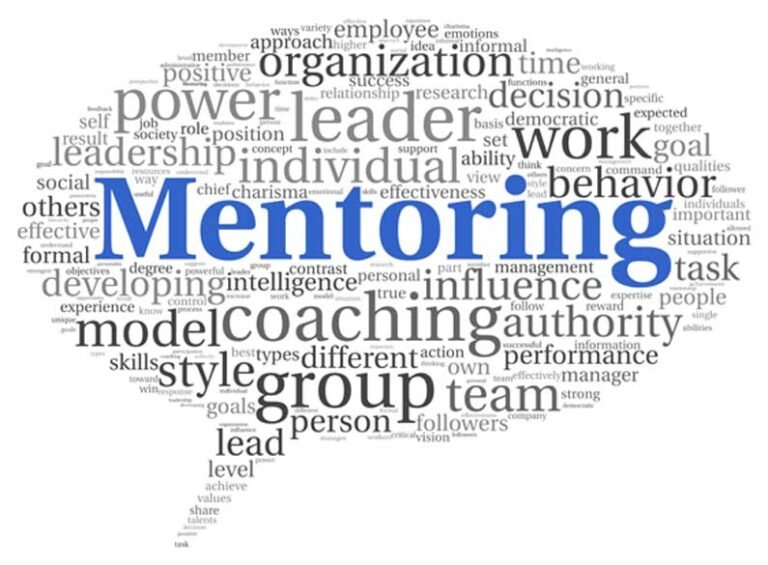Exploring the Dual Nature of Leadership and Its Impact in Professional Environments
The name “Janus-faced” derives from the Roman god Janus, who was generally represented with two faces, one looking ahead and one looking backward. Janus was renowned for his capacity to view both the present and the past. It was believed that the god Janus, who was the guardian of entrances and exits, had two faces because he could look into both the past and the future.
A person who portrays oneself differently in public and private contexts, or who is viewed as hypocritical or disingenuous, is said to have two faces, or to have two faces at the same time. The epithet “Janus-faced” is increasingly used in political forums. It is customary to use this word when referring to politicians or other public personalities who may hold contradictory views on a subject when speaking publicly and privately.
A Janus personality describes individuals who are inconsistent in their behavior, statements, or morals. These are the types of persons who exhibit a different face to different groups of people. It is also used to characterize those who cannot be trusted, who are dishonest, or who are insincere.
As I reflect on my professional career thus far, I frequently recall a quote by James Baldwin: “I love America more than any other country in the world, which is precisely why I insist on the right to criticize her indefinitely.” In the same way that Baldwin insisted on the right to criticize the United States of America, it is necessary to do an in-depth investigation of the problem of, dare I say, toxic personalities in our professions and to find answers to the issue. This is common knowledge; it is not a secret. We know who these individuals are, and for reasons with which we may or may not agree – continue to proceed throughout their professions without learning from or desiring to learn from past errors. We see it across industries and career sectors.
Incongruent Campus-Conference Persona is a concept I offer for reflection and discussion. I define Incongruent Campus-Conference Persona (ICCP) as persons who show up very differently on campus versus at conferences. These individuals may have a professional, rand well-respected public presence on the conference circuit and in the community, yet demonstrate toxic, disruptive, or unethical behavior on their respective campuses and in other professional contexts. These professionals may utilize their professional stature, reputation, and network to gain power, influence, and access to new possibilities, while concealing their undesirable characteristics. The notion of ICCP truly emphasizes the significance of openness, responsibility, accountability, integrity, and ethical behavior, as well as the need to develop methods for discovering and rectifying inconsistencies between a person’s on-campus and conference personas.
Far too often toxic individuals are able to maintain their employment and even move up the supervisory hierarchy due to a combination of circumstances. They may be adept at concealing their damaging behavior from those in positions of authority, exhibiting it exclusively in private situations or among select individuals or groups. They may also be adept at employing strategies such as charm, manipulation, and gaslighting to maintain influence over others and conceal their actual character.
A culture of complacency and a lack of accountability creates an environment for these individuals to persist. This can lead to the formation of an environment in which individuals who are damaging to the community are able to thrive and advance without facing the consequences of their conduct. However, some leaders place a greater focus on external criteria, such as student satisfaction and the institution’s reputation, than on internal factors, such as leadership and workplace culture. This can lead to a lack of attention being paid to toxic conduct, resulting in an inability to handle the issue effectively.
Likewise, the lack of openness and accountability might make it simpler for toxic leaders to transition between organizations and ascend the leadership ladder. This is a concern because leaders who are toxic can be tremendously detrimental to their organizations. The damage caused can take years to repair. The stories colleagues share with each other of nightmarish past supervisors is beyond the pale and I ask myself – how do these people continue to remain unchecked??
Under Janus-faced leadership, the concept of Incongruent Campus-Conference Persona (ICCP) can be particularly damaging to underrepresented staff members. Minority staff employees, such as persons of color, women, and members of the LGBTQ+ community, frequently encounter discrimination, bigotry, and marginalization in the workplace. This includes people of color, women, and members of the LGBTQ+ community, among others. When a leader in the field of higher education presents oneself differently in different circumstances or behaves in a toxic or destructive manner, it can create a hostile work environment for members of underrepresented groups on the staff.
An excellent illustration of this would be a leader who expresses support for diversity and inclusion in public yet engages in discriminatory behavior or makes insulting remarks behind closed doors. This can lead to misunderstanding and mistrust among underrepresented groups in the workforce. This type of leader may also utilize their public persona to shield themselves from accountability for their conduct and to create barriers for minority-represented personnel wanting to address workplace discrimination and bigotry.
In addition, staff workers from underrepresented groups who speak out against a Janus-faced leader may be more susceptible to reprisal. According to studies, employees from underrepresented groups who report discrimination and harassment are more likely to face retaliation than their colleagues from majority groups (Cortina, Magley, Williams, & Langhout, 2001). This can further marginalize employees from underrepresented groups and deter them from seeking assistance or reporting discrimination and bias.
Moreover, when executives who exhibit ICCP behaviors shift from one institution to another, they may bring their toxic behaviors with them, perpetuating prejudice and marginalization of minoritized employees in their new surroundings. Both the success of diversity and inclusion initiatives in higher education and the health and happiness of employees from underrepresented groups suffer as a result. This is even more important in the current socio-political landscape where anything remotely referencing DEI is being attacked and eliminated.
Educational institutions and professional organizations must take a clear stand against toxic behavior and incongruent campus-conference personalities and promote the health and career prospects of underrepresented employees – even when it is not politically expedient or difficult. This can be achieved through the implementation of accountability systems, the provision of help and resources to employees from underrepresented groups, and the cultivation of an atmosphere that values openness and diversity in its activities.
Failure to remediate poor leadership behaviors and allowing toxic persons to travel around their respective career fields and advance the leadership ladder can have substantial repercussions that could have serious consequences. These individuals have the ability to inflict harm to those around them, to destroy the organizational culture, and to have a detrimental impact on the overall efficacy and reputation of the higher education industry. Organizations and institutions must prioritize resolving toxic conduct and implementing accountability measures in order to prevent individuals from rising in their careers and causing further harm.
Discussion Questions:
- How might you address campus leaders who demonstrate ICCP type behaviors?
- How can institutions and professional organizations create mechanisms for identifying and addressing incongruence between an individual’s on-campus and conference persona?
- How can institutions and professional organizations prioritize the well-being and advancement of minoritized staff in the face of incongruent campus-conference persona?
- How can we create a culture of transparency and accountability in higher education that discourages incongruent campus-conference persona and toxic behavior?
- Do we need a ranking and rating system that would be available to prospective new employees?
- Do we need an organization that sits outside of higher, privately funded organizations to provide reports and support to higher education professionals with less institutional power?
Recommended Readings
Cortina, L. M., Magley, V. J., Williams, J. H., & Langhout, R. D. (2001). Incivility in the workplace: Incidence and impact. Journal of Occupational Health Psychology, 6(1), 64 – 80. https://doi.org/10.1037/1076-8998.6.1.64







